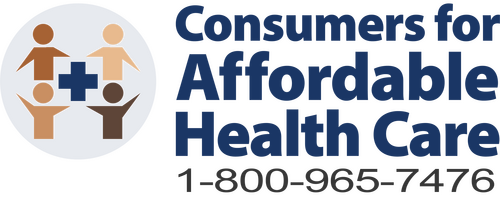Employer Sponsored Insurance (ESI) is coverage that is offered by your employer and often helps pay for your health insurance premiums. Some employers offer Health Reimbursement Accounts (HRAs) or Health Savings Accounts (HSAs) that can help with out of pocket costs associated with your health care. Even if you are offered Employer-Sponsored Insurance you may also qualify for additional health insurance coverage or assistance like Marketplace, MaineCare, CHIP, PHIP, or hospital free care.
-
What if my Family Coverage is too expensive?
Some consumers with an offer of coverage through their work for themselves and/or their family may be eligible for financial assistance through Maine’s health insurance marketplace at CoverME.gov.
You may qualify if your employer-sponsored plan is considered "unaffordable" or does not meet minimum coverage requirements.
*Employer-sponsored health insurance plans are considered unaffordable if the employee's share of the self-only or family plans monthly premium is more than 8.39 percent of the total monthly household income.
*Your employer plan must cover at least 60% of total health care costs for the employee and/or the employee’s family. This is called "the minimum value test".
*If you have dependents and meet certain income and age requirements, they may be eligible for the Children's Health Insurance Program.
*Depending on your household income, you might be eligible for help with your employer-based program through MaineCare's Private Health Insurance Premium program.
Call the Consumer Assistance HelpLine for help determining whether your employer-sponsored coverage is considered unaffordable or does not meet the minimum value test.
-
What is a Health Reimbursement Account (HRA)?
These employer funded group health plans are also called Health Reimbursement Arrangements (HRAs). Employees are reimbursed tax-free for qualifying medical expenses up to a fixed dollar amount per year. Typically, unused amounts may be rolled over to be used later. The employer funds and owns the account.
-
What is a Health Savings Account (HSA)?
An HSA is an account that lets consumers save for medical expenses on a pre-tax basis and can be used to pay for qualified medical expenses. Qualified medical expenses can include co-pays and bills going towards the plan’s deductible and co-insurance. Qualified expenses can also include payments for certain things that aren’t covered under your health plan such as eyeglasses, some types of Medicare premiums, or medical services for a spouse or dependent not covered under the health plan. Withdrawals for qualified medical expenses are not taxable. For some, their end-of-year HSA balance can be rolled over for qualified medical expenses in future years.
Check with your employer or Human Resources department for a detailed description of the HSA you are offered. -
What is a Health Reimbursement Arrangement (ICHRA)?
Employers can offer employees an Individual Coverage Health Reimbursement Arrangement (ICHRA). An ICHRA is not health insurance. The employer contributes a certain amount of money to the ICHRA that employees can use to pay for qualifying medical expenses. The employee and family members must be enrolled in a health insurance plan such as a plan through CoverME.gov, other individual health insurance coverage, Medicare, or a Medicare Advantage plan to use the ICHRA funds.
Gaining an ICHRA offer triggers a Special Enrollment Period at CoverME.gov. Employees may be eligible for premium tax credits to reduce premiums at CoverME.gov if the employer’s ICHRA is considered unaffordable and the employee opts out of the ICHRA. Premium tax credits cannot be used if the employee accepts the ICHRA.
If your employer offers an ICHRA, call the Consumer Assistance HelpLine to go over the offer, check for affordability, and check for a Special Enrollment Period. You may be eligible for premium tax credits and other savings at CoverME.gov.
-
What is a Qualified Small Employer Health Reimbursement Arrangement (QSEHRA)?
Small businesses with 50 or fewer employees may offer a Qualified Small Employer Health Reimbursement Arrangement (QSEHRA) rather than providing small group health coverage. The QSEHRA can be used to cover health insurance premiums and qualifying medical expenses. The employee needs to be enrolled in a health plan, such as a plan through CoverME.gov, a family member’s employer plan, Medicare, or a Medicare Advantage plan.
Gaining an offer of a QSEHRA triggers a Special Enrollment Period for health coverage at CoverME.gov.
Employees with a QSEHRA may be eligible for premiums tax credits at CoverME.gov when the QSEHRA is considered unaffordable. The amount of the QSEHRA the employee gets affects the amount of the premium tax credit they are eligible for. The tax credit amount is lowered by the QSEHRA amount. The employee should use less or none of the premium tax credits to avoid any tax liability at the end of the year. Final eligibility for premium tax credits with a QSEHRA is determined when the employee files their tax return. The IRS determines final eligibility for tax credits based on how much QSEHRA the employer offered, regardless of whether the employee used them. The employee will receive the premium tax credits they did not use in the form of a tax refund when they file their tax returns.
Use this worksheet https://www.healthcare.gov/downloads/qsehra-worksheet.pdf to determine whether the QSEHRA is affordable. This worksheet also helps determine how much of the premium tax credit should be used when the QSEHRA is unaffordable.
CoverME.gov provides a tool https://me26.checkbookhealth.org/#/hra to help small businesses determine health coverage options they can offer their employees. Small businesses use insurance brokers for their enrollment needs.
-
What is COBRA?
COBRA or the Consolidated Omnibus Budget Reconciliation Act requires most employer plans to provide temporary continuation of their group coverage to employees after the end of their employment. COBRA provides the same health insurance coverage an employee had before their job ended, but the employer is no longer pays a portion of the premiums. Because of this, it can be expensive. Consumers should consider all the coverage options they have before signing up for the COBRA. They may be eligible for premium tax credits and out-of-pocket savings with a health plan at CoverME.gov.
The loss of employer coverage triggers a Special Enrollment Period (SEP) for coverage at CoverME.gov. There is a 60-day window before or after the loss of coverage to apply and enroll. To avoid a gap in coverage, the application and enrollment must be submitted in the 60 days before the loss of coverage.
If someone enrolls in COBRA, or voluntarily drops their COBRA coverage, they are not eligible for a Special Enrollment Period.
During Open Enrollment (November 1st- January 15th) qualifying consumers can drop their COBRA coverage and enroll in Marketplace coverage at CoverME.gov.
Consumers will qualify for a Special Enrollment Period when their COBRA ends, typically after having it for 18 months.Call our Consumers Assistance HelpLine to compare the COBRA offer and eligibility for premium tax credits and other savings on health plans at CoverME.gov.


